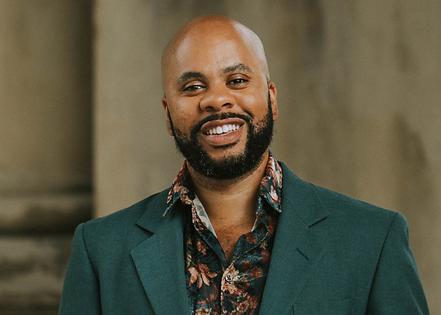Asking Eric: Family thinks brother is too wealthy to be included in tradition
Dear Eric: My husband and I have been married for almost 10 years. He has three siblings, and it seems like he’s the forgotten one. His mom and siblings always put money together and send it for each other’s birthdays. Last year and the year before that, they did it for everyone’s birthday except my husband.
He was very upset about it but said nothing.
This year his mom asked him and his siblings to send money to give another sibling for their birthday. My husband, of course, sent the money.
I’m tired of my husband participating in everyone’s birthday and then being ignored for his. I would love to speak up and say something but not sure it’s my place to do that as an in-law. I’m just trying to figure out if there’s a nice way to let them know how hurtful it is or if there’s a way to get out of sending money since my husband is excluded.
I would like to add that they all get along great and they’re close so not sure why he’s always left out. His mom did tell one of her friends not to send us anything because we make too much money and don’t need it. Our income is average/barely middle class for the state we live in. We are not rich and one of his siblings makes more money than us. I’m frustrated about the whole situation and would appreciate your advice on how to handle it.
– Fed Up with Exclusions
Dear Fed Up: It sounds like your husband could use an advocate and the family could use some help with communication. You can start the ball rolling on both by taking the reins. Rally folks yourself for your husband’s birthday. You can even tell his mother and siblings, “I notice that this is a family tradition, and I think it makes him feel left out to not get anything for his birthday, so I decided to organize on his behalf this year. It will mean a lot.”
The other family members might see your point and gladly chip in. Or they might protest, and this is where the conversation about money might come up, giving you a chance to correct their misconception. Also, if they don’t want to give money, surely there’s some other way they include him.
Ultimately, from your view, it’s not so much about cash as it is about feeling loved. Lead with that and it may help your husband’s mother and siblings open their eyes, and, potentially, their wallets.
Dear Eric: My very best friend of 40 years and I had a falling out last year. Prior to that, we’ve shared so many experiences – vacations, holidays, family get-togethers. Not sure what exactly was the reason as she and her husband retired and moved to a different part of the country after selling their very valuable real estate.
This friend was like a sister to me, and I was crushed with her ghosting and punishment of me and my family who also loved her. I sought counseling to figure out my role in this breakup and got some clarity.
Some things are out of our control and people make decisions that suit them at the time. But I was terribly hurt and accepted the breakup.
I liked a posting of hers and she reached out to me and said, “does this mean we can be friends?” I responded maybe. But I don't have trust in her anymore and don't want to initiate something that will come back to bite me later.
How should I navigate this? It was so much easier when there were no expectations and no contact.
– Wondering What the Next Step Should Be
Dear Wondering: Perhaps there’s a clue in her response. One way of reading her question – “does this mean we can be friends?” – suggests that she doesn’t see herself as having ghosted and perhaps has a different read on the falling out and both of your responses to it. It’s, of course, also possible that she’s being disingenuous, so proceed with caution. But, with clear communication and expectations, you both can choose where and how to begin your friendship again.
Start with the question, “Do you want to process what happened?” Ask yourself first and then put it to her. You may find that you don’t want to rehash and a simple, “I’m sorry that we haven’t been in each other’s lives” will suffice. But if you feel that there’s harm that needs repairing, it’s best to bring it up rather than letting it fester.
Trust will take time to rebuild. But, if you’re both approaching this reconciliation with honesty and good intentions and owning what’s on each of your sides of the street, it won’t always feel this uncomfortable.
(Send questions to R. Eric Thomas at eric@askingeric.com or P.O. Box 22474, Philadelphia, PA 19110. Follow him on Instagram and sign up for his weekly newsletter at rericthomas.com.)
©2025 Tribune Content Agency, LLC.


















Comments